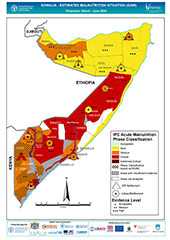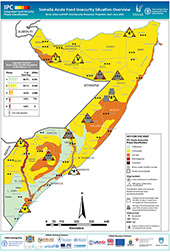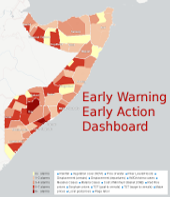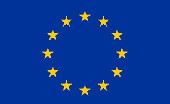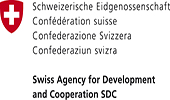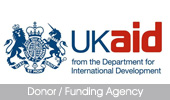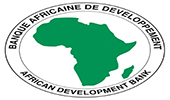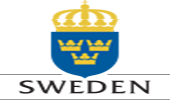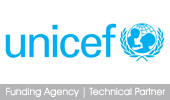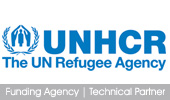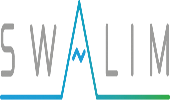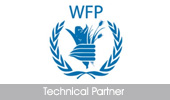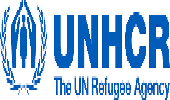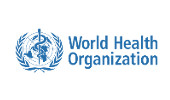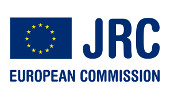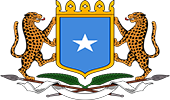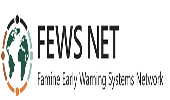About Us / Institutional Relationships
Institutional Relationships
FSNAU is a project funded by the European Commission and USAID (donors), and implemented by the UN FAO. The FSNAU receives technical support from a number of core technical partners and services a wide range of clients / users, including the international development community and Somali people.
The diagram below illustrates these institutional relationships, noting specific agencies involved in this current funding phase as well as the key inputs and outputs of the relationship.
Donors
Current donors are the European Commission and USAID (with targeted money for the nutrition component). The EC has committed to this fifth funding phase, which will last through March 2009; and USAID has committed through December 2006. In addition to the financial contribution, donors also provide strategic direction in the form of initial project formulation, and on-going strategic guidance through the steering committee and negotiations with the implementing agency.
Implementing Agency
The core donors have selected the UN FAO to be the Implementing Agency for the current funding phase. As such, the FSNAU is operationally and technically managed "in trust" by the FAO, although this does not imply agency ownership. The future vision for the FSNAU is that it would be managed by Somali governing authorities.
The primary functions of the implementing agency are to provide operational and technical management to the FNSAU. Operational management includes ensuring adherence to proper financial, administrative, and personnel procedures in line with legal obligations of the donors and UN FAO. Technical management includes provision of technical support on specific technical activities, strategic development, hiring decisions, and publications.
Technical Partners
While the FSNAU has a strong technical team totaling 55 people in Somalia and Nairobi, there is an on-going need for technical inputs. A number of Technical Partners have continuously provided technical guidance, inputs, and field support to FSNAU activities. The currently recognized Technical Partners include: FEWS NET, UNICEF, WFP, FAO, SCF-UK, OCHA, and CARE.
Many NGOs and UN agencies intermittently provide support to, or a least have a strong interest in, the FSNAU, and they can be recognized by explicit inclusion of the Somalia Aid Coordination Body (SACB) as a technical partner. Somali authorities are and will increasingly be involved with FSNAU activities in the form of: joint field assessments, key indicator monitoring, and joint analysis in seasonal projections and regular monthly sub-regional analysis (specific collaborations are currently being clarified).
FEWS NET has an exceptionally strong technical relationship with the FSNAU in terms of coordinated work plans, frequent joint publication of reports, integrated technical expertise, and regular financial contributions to FSNAU activities.
While technical partners are encouraged to actively contribute to any and all FSNAU technical activities, the final conclusions of FSNAU analysis are the sole responsibility of the FSNAU, and does not necessary imply endorsement of any particular agency unless otherwise stated.
FSNAU and Technical Partners sign a joint Memorandum of Understanding to commit to these mutually supportive collaborations.
FSNAU Field Partners
- Action Contre la Faim (ACF)
- Aktion Afrika Hilfe (AAH)
- ADO
- Africa Rescue Committee (AFREC)
- AGROSPHERE
- American Friends Service Committee (AFSC)
- Somalia European Committee for Agricultural Training(CEFA)
- German Agency for Technical Assistance(GTZ)
- Candlelight
- Cooperazione Italiana Nord-Sud (CINS)
- CISP International Center for the Development of Peoples
- Communities of Warberi, Hamrwein and Hamar
- Concern Worldwide
- Cooperazione Internazionale (COOPI)
- Coordinating Committee of the Organization for Voluntary Service (COSV)
- Gedo Health Consortium (GHC)
- Horn of Africa Relief and Development Agency - Horn Relief
- Horn of Africa Voluntary Youth Organization (HAVOYOCO)
- Inter SOS
- International Fund for Agricultural Development IFAD (Somaliland-Karan)
- International Medical Corps (IMC)
- Jabjab
- KISMIA
- Medecins Sans Frontieres (MSF)-Belgium
- Medecins Sans Frontieres (MSF)-Holland
- Medecins Sans Frontieres (MSF)-Spain
- Muslim Aid UK
- NERAD
- ODA
- OXFAM
- PACE Somalia Project
- Pastoral and Environmental Network for the Horn of Africa (PENHA)
- SAS
- Save the Children Fund UK (SCF-UK)
- Shilcon
- Somali Volunteer Organization (SVO )
- Somalia Red Cross Society (SCRS/ICRC)
- Terra-Nova
- VETAID (Health Animal - Health People)
- Veterinaires Sans Frontieres (VSF-Suisse)
- World Concern
- World Health Organization (WHO)
- World Vision
- Zamzam Foundation
Clients / Users
The FSNAU Clients/Users can expect to receive accurate and timely information on livelihoods, nutrition, and food security issues in Somalia so as to facilitate strategic decisions on immediate and long-term food security interventionsand make more effective the timely response and proactive. FSNAU clients/users fall into two main categories: (1) the international development community (UN agencies, NGOs, Donors, and the media), and (2) Somalia People (including local authorities, local NGOs, market traders, and Somali people themselves).
The clients/users currently receive information in the form of regular Monthly/Quarterly Briefs, Nutrition Updates, Market and Climate Updates, the FSNAU Technical Series, regular presentations at SACB, the Humanitarian Response Group, and field coordination forums; and frequent ad hoc requests for information. The FSNAU is currently developing readily accessible information and data management systems (including a Digital Library of all reports, maps, and presentations related to Somali Livelihoods; a Spatial Database with all "mapable" data; and a Statistical Database). The development of these data management facilities will allow for easy access to FSNAU information.
To further enhance accessibility of FSNAU information to Somali clients, ongoing initiatives include: (1) posting of FSNAU reports on numerous Somali web sites, (2) translation of FSNAU key publications into Somali language, and (3) use of local radio to disseminate key messages to Somali people.
